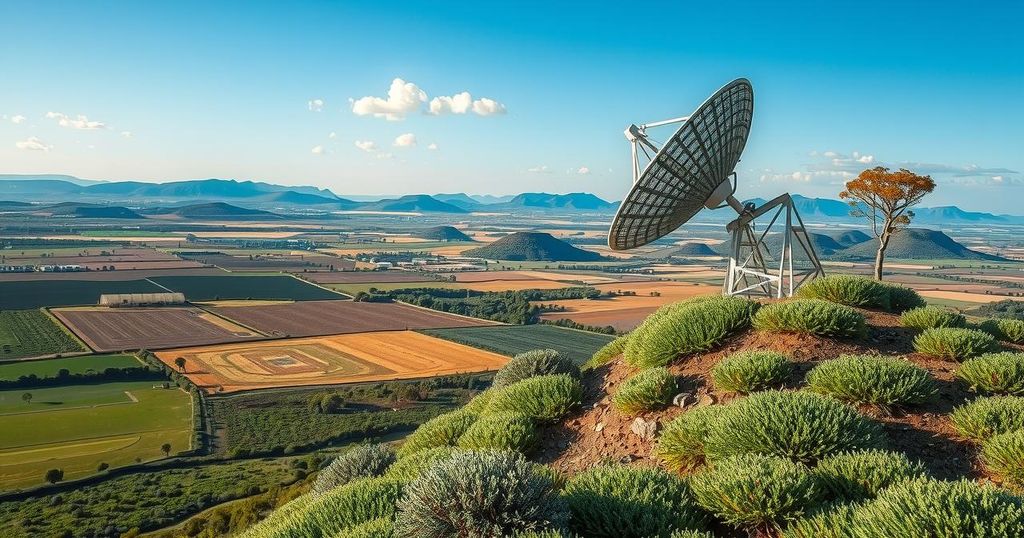Elon Musk claimed his Starlink service was blocked in South Africa due to his race. The South African government swiftly denied this assertion, stating that Starlink had not applied for a license. Officials highlighted that compliance with local regulations, rather than race, is necessary for operation. The discussion also raises issues surrounding South Africa’s Black Economic Empowerment policies and their impact on foreign investments.
The South African government has refuted claims made by Elon Musk regarding his Starlink satellite service being blocked due to his race. According to the country’s telecommunications regulator, Starlink has not submitted an application for operation within South Africa. Musk made this assertion on the platform X, which he owns, stating, “Starlink is not allowed to operate in South Africa, because I’m not black.”
Clayson Monyela, a senior official in South Africa’s foreign affairs department, responded directly to Musk on social media, emphasizing that the situation does not pertain to race and that compliance with local laws is required for Starlink’s operations. “Sir, that’s NOT true & you know it! It’s got nothing to do with your skin color. Starlink is welcome to operate in South Africa provided there’s compliance with local laws,” Monyela stated.
Musk’s comments seem to reference the local Black Economic Empowerment regulations, which necessitate foreign telecommunications providers to sell 30% of their stakes to historically disadvantaged groups. It has been reported that SpaceX, Starlink’s parent company, communicated with the Independent Communications Authority of South Africa (ICASA) suggesting a reevaluation of this ownership requirement.
An ICASA representative confirmed that no application had been submitted by Starlink or SpaceX. Communications Minister Solly Malatsi did not provide a comment when contacted regarding the issue. Furthermore, it has been suggested that ICASA consider alternatives, such as skills development, to accommodate foreign companies like SpaceX in the local telecommunications market.
While Starlink has successfully operated in several African nations, it faces challenges in South Africa, as well as in Cameroon and Namibia, related to licensing difficulties. Elon Musk, who attended school in Pretoria, South Africa, before moving to the United States remains a prominent figure in technology and advisory roles, including connections to political matters involving the U.S. government.
In summary, the South African government has dismissed Elon Musk’s claims that Starlink’s operations are hindered by racial discrimination. The organization clarified that the lack of an operational license stems from administrative processes rather than racial factors. The discourse around regulatory compliance highlights the challenges faced by foreign companies in accessing the South African telecommunications market, particularly under specific ownership laws.
Original Source: www.staradvertiser.com






